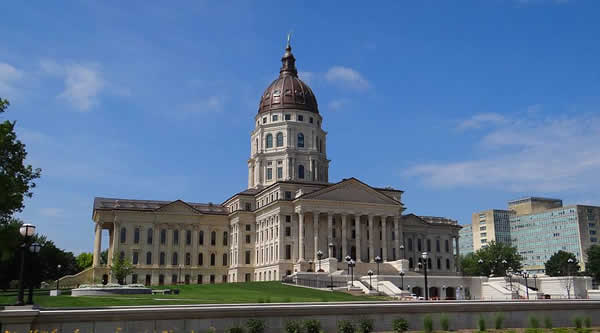Kansas is the next state in line pushing for sports betting legalization. With the NBA and MLB footing their version of a sports betting platform state-to-state, the Kansas version could be a preview of what to expect with upcoming legislation. The Kansas bill could shape how USA sportsbook sites are formulated from this point on.
One thing the NBA and MLB have been pushing are integrity fees. They believe that they are entitled to 1% of sportsbook wagers because the games they host are a product and part of their intellectual property. 1% of all sports gambling wagers may seem small, but it can be a significant figure for states depending on the gambling market. The Kansas bill dialed the integrity fee back to .25% and is capped at 5% in the event of a surge in popularity and total wagers placed. This is similar to what New York did with their bill, except NY capped theirs at 2%.
Another interesting component of the Kansas bill is that gives leagues the opportunity to request restrictions on certain games and types of wagers. Don’t be alarmed. The bill does not give them the power to block anything. All final approval rests with the Kansas Gaming Commission. This could prove troublesome, as leagues could lobby for certain games or wagers to be restricted, but that seems to be how things go with politics.
When it comes to data integration, the Kansas bill found a middle ground. The bill states that sportsbooks can use any third-party data source for basic wagers. However, leagues have the right to dictate which data is used for live betting and specific wagers (possibly prop bets). The data monopoly issue is still a bit of a question mark for some, but under this proposal, the NBA (for example) controls how live betting wagers are determined based on the analytics official league sources report. If you wager on a player to get 10 rebounds in the second quarter, your betting result depends on how the NBA tracks that statistic as opposed to a third-party source.
This bill is the clearest example of a state attempting to reconcile with the leagues’ demands. New York tied in the integrity fees, but Kansas seems to have addressed each of the concerns put forth by the NBA and MLB. Other states may follow this model when it comes time to put out a piece of sports betting legislation.
Is there potential for problems? Sure. Conspiracy theorists may begin to wonder if leagues are altering their stats to fit certain betting lines. Some may wonder if they will restrict certain prop or live bets. Unfortunately, all anyone can do is wait to see how the PASPA case plays out and how the sports betting market develops thereafter. Any laws passed now can be amended later, but we are starting to get a glimpse of how legislation could be in the coming months. Kansas is providing the basic framework for potential legal online sports betting.

